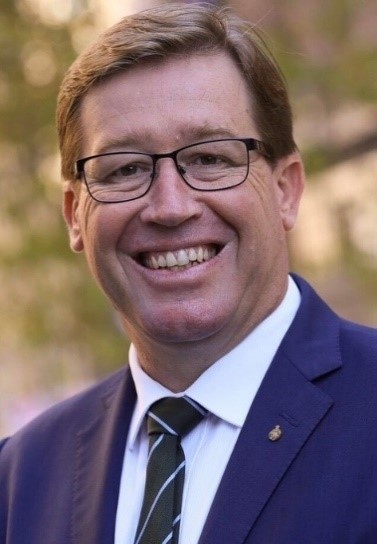HALF the Murray-Darling Basin’s water take can’t be properly monitored because the NSW Government has failed to submit water management plans, a former deputy premier says.
Inspector-general of water compliance Troy Grant told the Murray-Darling Basin Authority’s River Reflections conference in Mildura yesterday that after 300 days in his role the “most critical failure” of the basin plan was the absence of all 20 of the NSW Government’s water resource plans (WRPs).
“The single most important compliance matter in the basin plan is sustainable diversion limits (SDL) compliance,” Mr Grant, a former Nationals state leader, said.
“It is the foundational cornerstone of … how much can be taken across these valleys … and still have a sustainable river.
“The basin plan requires a WRP to set out a method for determining the maximum quantity of water permitted to be taken for consumptive use in each accounting period.”
He said WRPs affected decisions about water availability to the environment and the consideration of cultural values in water allocations, and no legal enforcement could take place without accredited WRPs.
“If an area … in the basin cumulatively exceeds its permitted take by 20 per cent, the basin plan outlines the rules around non-compliance and reasonable excuse, which can then be enforced.
“While NSW’s WRPs remain outstanding, full compliance with the basin plan cannot be achieved.”
While every other basin government had provided their accreditation plans, Mr Grant said he needed to “call out” the NSW Government’s delay as its accountability was “not equal” to other basin states.
“NSW is responsible for around 50 per cent of the water take,” Mr Grant said.
“We know that floodplain harvesting is still occurring unregulated in northern New South Wales.
“WRPS are where NSW must show that floodplain harvesting is within sustainable levels.”
Mr Grant said while the MDBA had established a temporary agreement with the NSW Government to enable the accounting of water take past July 2019, he said those agreements were “supposed to be a short-term fix”.
Mr Grant said while the National Resources Access Regulator (NRAR) had “come a long way” in its work on water theft, WRPs was not an issue that came under NRAR’s control.
He said the NSW Government was due to submit its 20 WRPS by the end of this month but signalled that he would raise the prospect of the MDBA stepping in to create those plans with new Federal Water Minster Tanya Plibersek if the deadline was not met.
“Simply put, the Commonwealth minister may adopt a WRP that is prepared by the MDBA rather than the state,” he said.
“I really hope the New South Wales Government and the Water Minister, Kevin Anderson, have produced these plans that are capable of accreditation under the basin plan,” Mr Grant said.
“This obviously cannot be allowed to go on forever.”
Mr Anderson said his focus had been on meeting stakeholders and basin communities to deliver the “best possible outcomes for all NSW water users and the environment”.
“While our diaries have not aligned at this stage I am looking forward to a meeting with the inspector-general, as I am looking forward to meeting with the new Commonwealth Water Minister,” Mr Anderson said.
“I look forward to continuing to work with the Murray-Darling Basin Authority to establish the most effective short and long-term solutions that will balance the needs of the environment, community and farmers while improving drought security.”
















